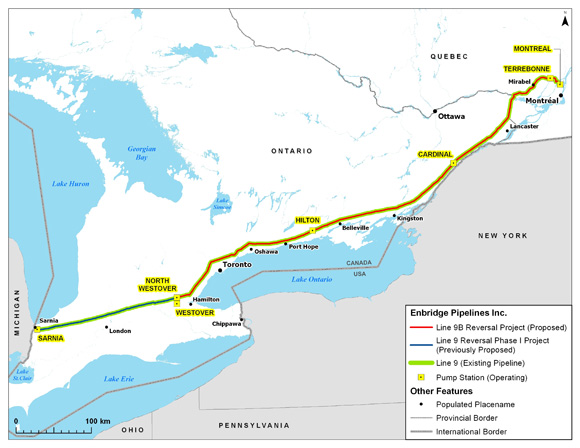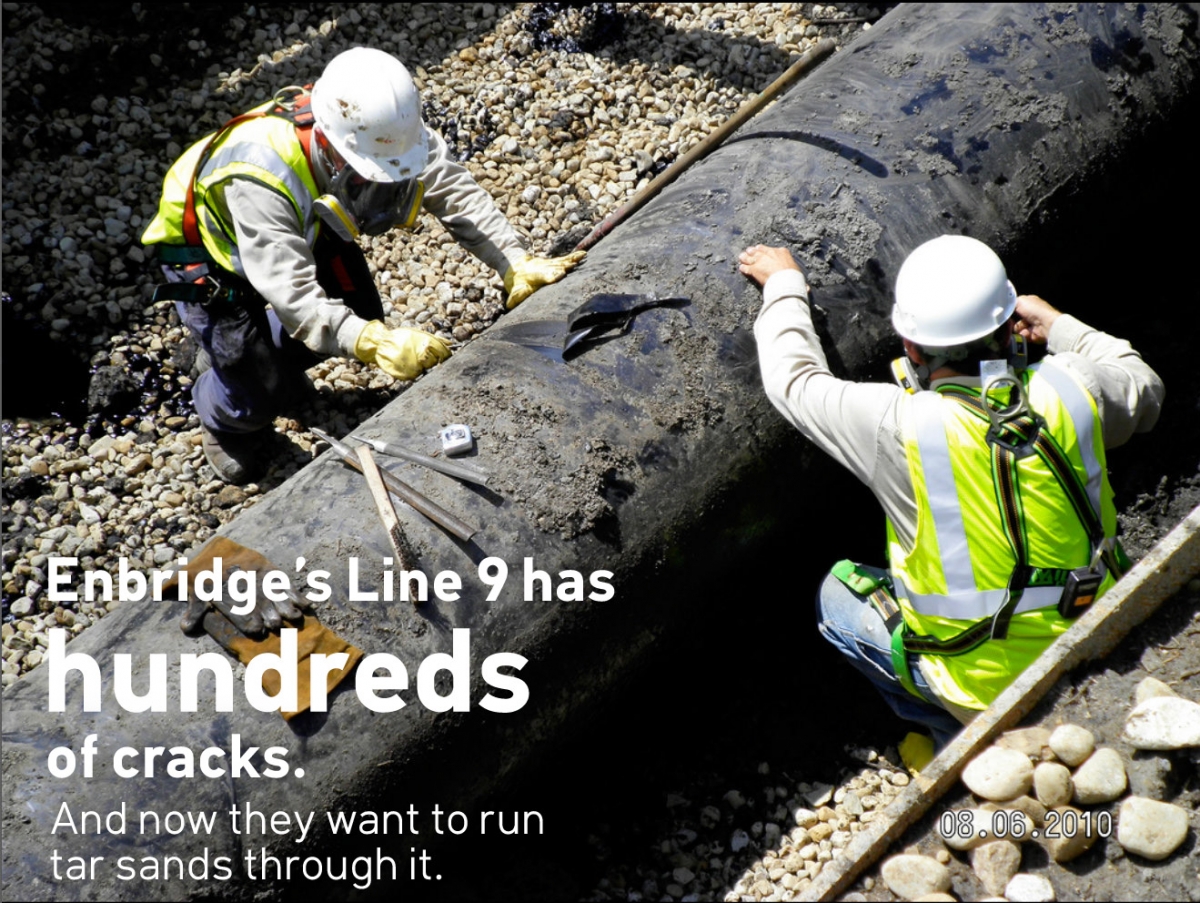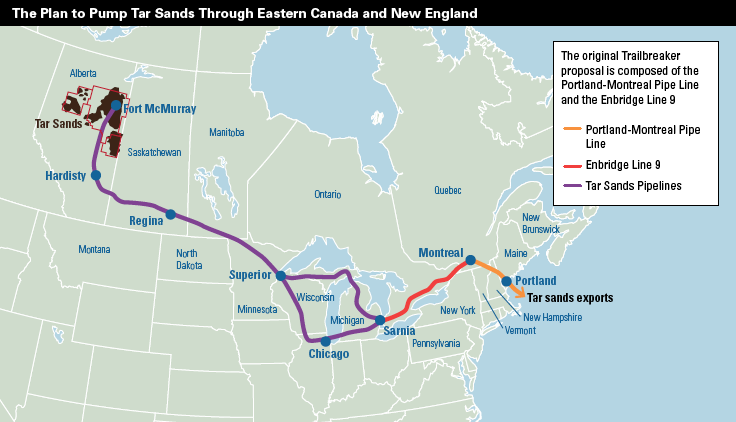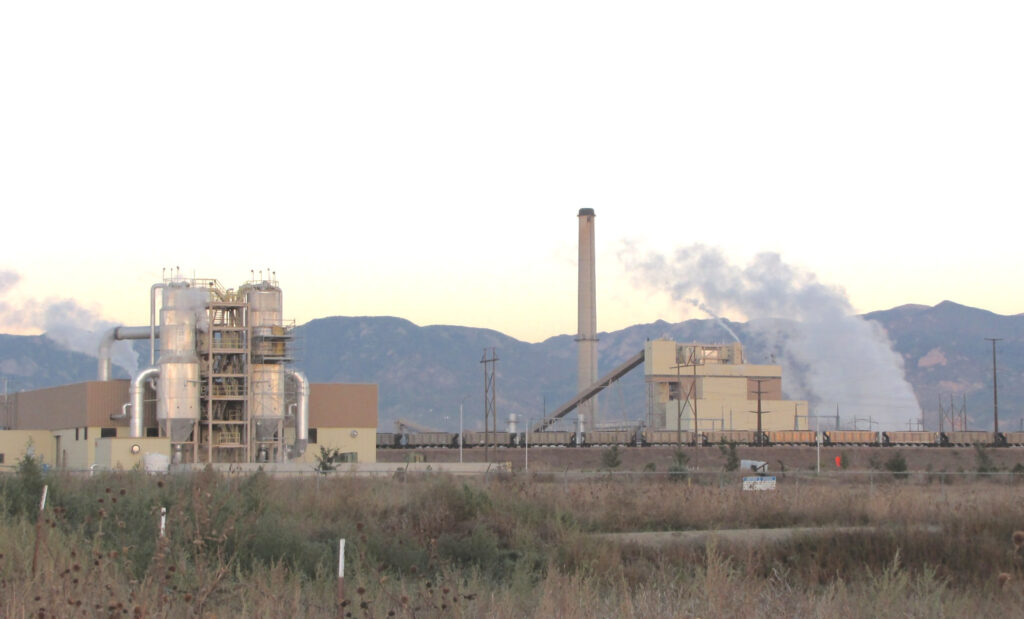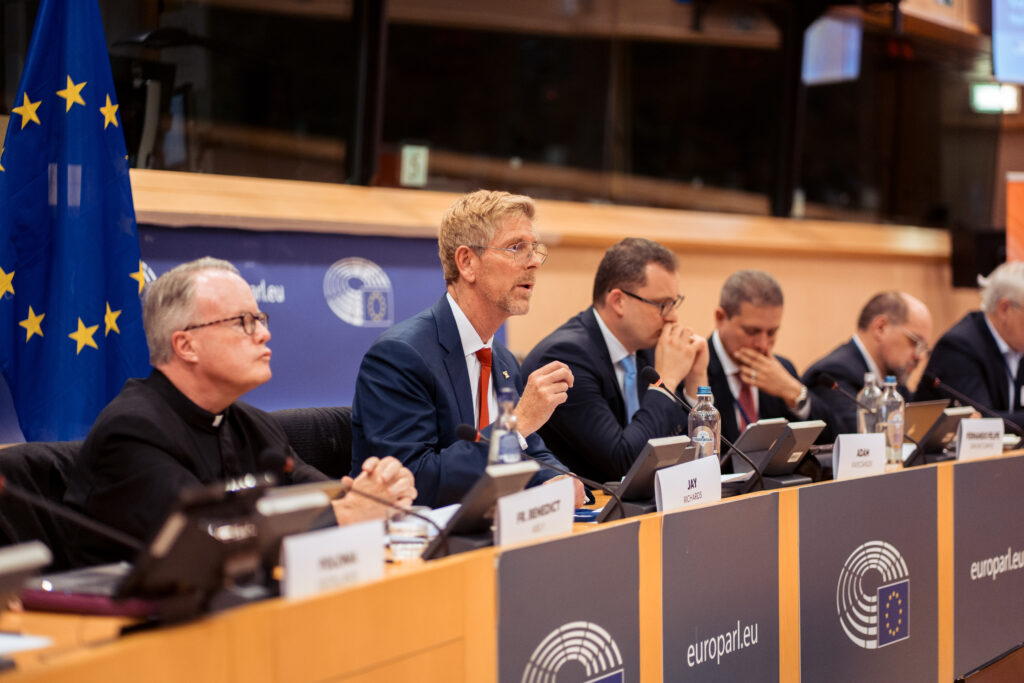Alberta’s tar sands crude has a new route east.
Canada’s National Energy Board announced on Thursday the approval of Enbridge’s request to reverse and expand a portion of the company’s Line 9 pipeline to allow for crude to flow east to Montreal, Quebec. This follows a July 2012 decision by the NEB to allow reversal of the western Line 9 segment from West Northover to Sarnia, Ontario. As a result, in the words of the NEB, “Enbridge will be permitted to operate all of Line 9 in an eastward direction in order to transport crude oil from western Canada and the U.S. Bakken region to refineries in Ontario and Quebec.”
Canadian activists urged the NEB to fully consider the high risk and small reward of reversing the pipeline, pointing to the “DilBit Disaster” — when another reversed-flow Enbridge pipeline spilled over 800,000 gallons of diluted bitumen into Michigan’s Kalamazoo River — as a warning for what could occur on the Line 9 route.
As DeSmog Canada has reported, Enbridge’s Line 9 shares the same design deficiencies as the company’s Line 6B, which burst in Michigan. Canadian environmental groups are crying foul over the agency’s non-transparent and restrictive public comment process.
“It’s pretty obvious the entire regulatory system is broken,” Adam Scott, spokesperson for Environmental Defence, told the Vancouver Observer. “They restricted the public’s ability to even participate.” Language in a 2012 budget bill allowed the NEB’s decision to be made without a comprehensive environmental assessment, and the Canadian public was forced to complete a lengthy 10-page application (and given a short two week warning to do so) to even earn the right to submit a public comment.
“There were roughly 150 folks who were actually even allowed to comment or write a letter, and this was also the first major energy project not to have to go through an environmental assessment, so it’s clear the whole system has been stacked against the public’s interest in favour of oil companies,” said Scott.
Nader Hasan of Forest Ethics agrees that the decisionmaking process was rigged.
“Our position is that the decision isn’t just wrong, it’s invalid,” said Hasan. “The rules of the game were rigged in favour of Big Oil. We believed and continue to believe this decision is fundamentally flawed because the process is fundamentally unfair.”
Forest Ethics is challenging the restrictive public comment process with a lawsuit, launched last year, which they hope will be settled in time to impact future NEB decisions.
Impacts in the United States
Though Enbridge’s Line 9 terminates near Montreal, the flow reversal is an integral part of the company’s plans to move diluted bitumen and crude from the Bakken shale to Eastern ports for export.
As we first reported on DeSmogBlog in 2012, internal documents revealed how Enbridge was resuscitating an old industry plan, once called Trailbreaker, to link the pipeline system in the American Midwest, where tar sands crude already flows, to a coastal terminal in Portland, Maine. Enbridge’s Line 9, traveling through Ontario and Quebec, is a crucial link.
Image: NRDC
In 2012, 19 advocacy groups including the Natural Resources Defense Council, Conservation Law Foundation, Greenpeace Canada, the National Wildlife Federation, and 350.org released a report, Going in Reverse: The Tar Sands Threat to Central Canada and New England, that laid out the then-secret plans to connect Enbridge’s Line 9 with the Portland-Montreal Pipeline.
Who runs the Portand-Montreal Pipeline system? As the “Going in Reverse” report explains:
The Portland-Montreal Pipe Line is managed by two linked companies: the Montreal Pipe Line Limited, which owns and operates the Portland-Montreal Pipe Line with its wholly owned U.S. subsidiary, the Portland Pipeline Corporation.
The Portland-Montreal Pipe Line company, as well as Enbridge Inc., have been open about their intent to move tar sands oil east through central Canada and New England.
In 2011, Portland Pipe Line Corp. expressed publicly, “We’re still very much interested in reversing the flow of one of our two pipe lines to move western Canadian crude to the eastern seaboard,” treasurer Dave Cyr was reported saying. “We’re having discussions with Enbridge on their Line 9 and what it means to us.”
And then there’s this: Montreal Pipe Line Limited is owned in large part by Imperial Oil Limited and Suncor Energy
For the past two years, environmental groups and activists on this side of the border have been working to ensure that the 62-year-old Portland-Montreal Pipeline is never reversed. that travels through a number of ecologically-sensitive areas and crosses hundreds of waterways through Vermont, New Hampshire, and Maine. On Tuesday, Vermont residents of 13 towns passed resolutions during Town Meeting to prohibit the transport of tar sands crude through the pipeline. “Vermonters have already loudly signaled opposition to transporting tar sands across our rivers and farms, alongside lakes, and through communities of the Northeast Kingdom,” said Jim Murphy, National Wildlife Federation Senior Counsel. “A spill would have a devastating impact on our water supplies, wildlife habitat and tourism industry. And any transport of tar sands through Vermont would encourage growth of an industry that contradicts all of our state’s leadership and hard work on moving toward cleaner sources of energy.” In South Portland, Maine, which hosts the potential export terminal, residents worked to pass a “Waterfront Protection Ordinance” on the ballot last fall, but were outspent 6-to-1 by Big Oil interests. The resistance of New Englanders might already be having an impact. While Enbridge was outspoken on a 2008 earnings call about the potential of linking its proposed tar sands pipelines to the Portland-Montreal Pipeline, this week a company spokesperson told VTDigger.org that Enbridge had “no interest” in using the Portland-Montreal Pipeline to move tar sands crude.
Subscribe to our newsletter
Stay up to date with DeSmog news and alerts


